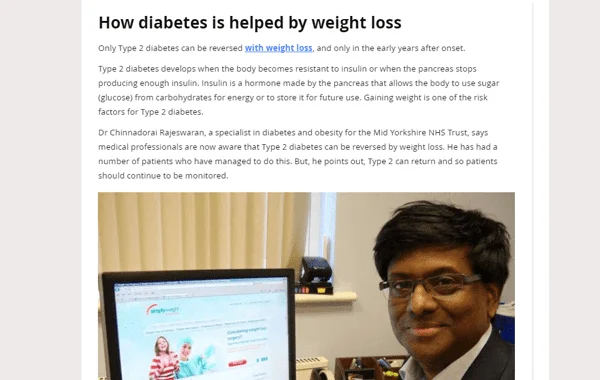We are often told not to eat fatty foods when our cholesterol levels were high. We are never told what type of fatty foods to avoid and what fats can be taken. Did you know our body does need cholesterol for the function of hormones?
Certain types of cholesterol are needed for good health. It is used for many functions in the body like producing hormones and cell building.
In this blog, I will be talking in detail about what cholesterol is, the types of cholesterol, its functions, types of fat, and how dietary fat contributes to cholesterol levels in the body.
What is cholesterol?
It is a wax-like substance that is present in the blood. It is essential for body function and good health. There are different types of cholesterol and when the levels of cholesterol are high in the blood, it can cause various health risks.
Cholesterol sources:
There are two different sources of cholesterol, our body produces cholesterol for various body functions. The liver produces major cholesterol in the body.
Another source of cholesterol is from the diet, foods such as red meats, eggs, cheese, and milk contribute to cholesterol levels in the body.
Fat in the body is transported in the blood with the help of lipoproteins. Lipoproteins are proteins that bind with fats and help in the transportation of lipids. It contains protein, triglycerides, and lipids in varying amounts.
Functions of cholesterol
- Cholesterol helps in new tissue formation, it also repairs tissue damage.
- It is involved in the production of steroid hormones like oestrogen and androgens.
- It is involved in the production of vitamin D
- Helps produce bile
- Helps in the production of cholesteryl ester
Types of Cholesterol
The four main types of cholesterol are:
- Very low-density lipoproteins (VLDL)
They are produced from the liver and transported through blood to supply fat for tissues.
- Low-density lipoproteins (LDL)
LDL carries cholesterol from the liver to other body parts. LDL is often called the bad cholesterol. The fat and cholesterol are extracted into the cells when the LDL attaches to the cells. When the LDL levels are high in the blood, it forms a plaque in the arteries and the blood flow is restricted. This causes an increased risk of heart attack or stroke.
- High-density lipoproteins (HDL)
The main function of HDL is to remove the cholesterol from blood, and artery walls and transport it back to the liver.
HDL is called good cholesterol because It prevents the accumulation of cholesterol in the blood. The risk of coronary heart disease and atherosclerosis is reduced.
- Triglycerides
It is obtained from food. They circulate in the blood and it is a common type of fat. Food such as butter, oils, and other fats contribute to triglycerides.
The body stores extra calories that are not used for energy production or any other body function, such as triglycerides. Though triglycerides are good for health, high levels increase the risk of heart disease.
Consequences of high cholesterol level
Increased cholesterol levels in the body increase the risk of heart attack and stroke. When left untreated it leads to many complications such as:
- Cardiovascular diseases
- Stroke
- Diabetes
- Artery diseases
- High blood pressure
Now that we learnt about types of cholesterol, let us understand the different types of fats.
Types of Fats
There are three types of fats:
- Unsaturated fats
They are loosely packed fats and are liquid at room temperature. They have many health benefits such as improving blood cholesterol, reducing inflammation, stabilising the heart and many more.
They are mainly obtained from plant food such as vegetable oils, nuts, and seeds.
Monounsaturated fats and polyunsaturated fats are two types of unsaturated fats.
Monounsaturated fats are found in olive oil, peanut oil, canola oil, avocados, olives, almonds, walnuts, hazelnuts, pecans, pumpkin seeds and sesame seeds.
Polyunsaturated fats are found in sunflower oil, corn oil, soybean oil, flaxseed and flaxseed oil, walnuts, and canola oil. It is also present in fatty fish such as sardines, mackerel, salmon and tuna.
Omega 3 is a type of polyunsaturated fat that has many health benefits. It cannot be produced in the body and should be obtained from food sources.
- Saturated Fats
They are present in all the foods in a certain amount. It is mainly found in animal food products such as beef, cheese and ice cream. They are also present in chicken and nuts in small quantities.
Plant foods such as coconut, coconut oil, palm oil, and palm kernel oil also have saturated fat present.
High-saturated food sources such as cookies, pizza, cheese, whole milk, fat-reduced milk, butter, and meat products like sausages, bacon, and hamburgers.
Many studies show that consuming high amounts of saturated fats increases cardiovascular diseases.
- Trans Fats
Hydrogenated vegetable fat is called trans fat. Heating vegetable oil in the presence of hydrogen gas and a catalyst is called hydrogenation.
Beef fat and dairy fat also have trans fat present in them naturally.
When trans fats are consumed in excess they accumulate in the arteries and increase the risk of heart attacks and other heart diseases.
They also increase other potential health effects like increased inflammation, insulin resistance, diabetes and other chronic conditions.
To answer the question:
Does dietary fat contribute to cholesterol levels?
Studies show that a diet high in saturated fat and trans fat can affect the blood cholesterol levels .
Dietary cholesterol’s response varies from person to person. The type of fat and carbohydrate in the diet also contributes to cholesterol levels.
Cholesterol from dietary food has a moderate impact on the levels and in some the levels rise very quickly with dietary cholesterol.
When consuming a diet high in saturated fat and trans fat, it can have adverse effects on health like increased risk for obesity, atherosclerosis, and heart disease. It is important to understand that dietary cholesterol does not impact blood levels as much as saturated fat does.
Management of cholesterol levels
- Start eating healthy
Talk to a professional dietitian and get a personalised meal plan. Healthy eating includes vegetables, fruits, whole grains, nuts, legumes, fish, poultry and seafood. Include monounsaturated and polyunsaturated fats in your meal plates (food sources are mentioned above).
- Exercise regularly
Exercising regularly improves your HDL levels. Start with moderate-intensity exercises.
- Limit your alcohol and quit smoking
Limiting and quitting alcohol and smoking improves health.
Conclusion
Cholesterol is majorly produced by the liver in the body. Although cholesterol is needed for many bodily functions, high levels increase health risks. Saturated fats and trans fats contribute to cholesterol levels in the body. Dietary cholesterol does not affect the blood levels as much as saturated and trans fat does.
Following a healthy diet and consuming healthy fats like MUFA and PUFA, exercising regularly helps in decreasing the risk of heart disease.
Kripa N,
Senior Clinical Dietitian, Simplyweight













